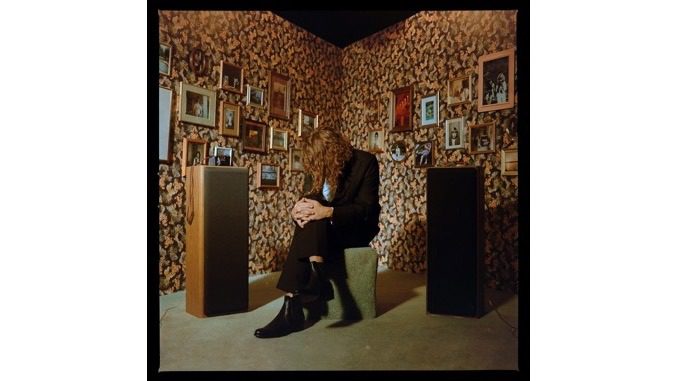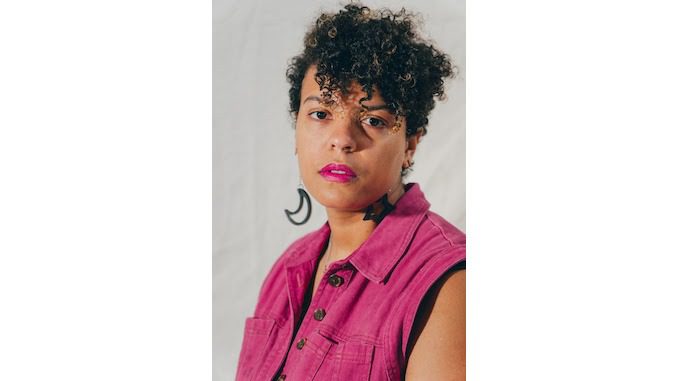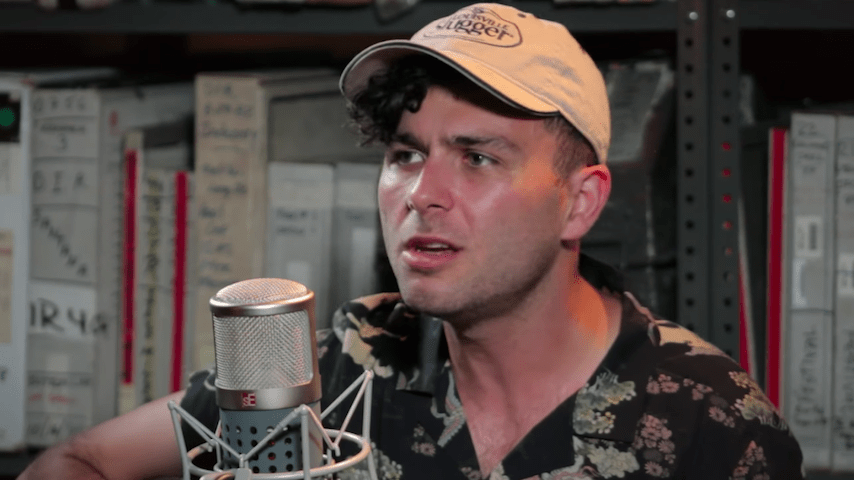Memphis makes beautiful music. Elvis Presley and Johnny Cash recorded hits at Sun Studio, while Stax Records, a cradle of American soul music, played host to Otis Redding, Booker T. & The M.G.’s and countless others. Alongside Atlanta, Nashville, New Orleans and Muscle Shoals, Alabama, Memphis is a Southern city whose music history is its history.
Memphis is a place that has endured much pain, too. A climbing crime rate and an ugly civil rights history give it a bad rap. But it’s like any other place, really—both good and bad, beautiful and grotesque. So it’s fitting that Memphis is the backdrop for Kevin Morby’s new album This Is a Photograph, in which a series of highs and lows blur against the very American sounds of folk, rock, gospel and blues, plus Morby’s own je ne sais quoi. Whether Photograph is Morby’s best album is hard to say just now, but it certainly ups his already stellar batting average. The man doesn’t make bad music (or if he does, he doesn’t share it). He has experimented with different moods and textures to great success throughout his decade-long solo career, and Photograph is the convergence of every move Morby has made before it.
Morby doesn’t just mention Memphis on nearly every song on the album, but he also actually pieced the record together and recorded some of it in the Tennessee metropolis. As he mentions on the woefully nostalgic “It’s Over,” he brainstormed ideas and put them to tape in a makeshift recording studio “up in the Peabody, room 409.” There, posted up in the iconic Peabody Hotel, after his father had a health scare in early 2020 and then got back on his feet, Morby fleshed out ideas in a state of emotional openness. On the resulting album, his lyrical musings about family, love and country have never sounded clearer.
This is not the first time Morby has written love notes to cities—2017’s City Music, aptly, is full of them (“Come To Me Now” specifically honors how a city transforms at night). But what will now ascend to its spot as the best love song in Morby’s catalog isn’t about a place. It’s a true, tender love song for his partner, Waxahatchee’s Katie Crutchfield, called “Stop Before I Cry,” a tune so special, it’s in line with the other greats of our time like Jason Isbell’s “Cover Me Up.” Morby sweetly begs her to “Stop the song now, stop before I cry.” He also promises, “Baby if we part, Katie if I hide, then I can live in your songs forever, and you can live in mine,” and admits, “Katie when you’re dressed up, it’s hard to find the words.” It’s so personal, it almost feels like spying.
Another personal moment comes during the title track and lead single, which was inspired by an old photograph of Morby’s father that he stumbled upon shortly after the aforementioned health scare. He also mentions old photographs of his mother and himself, and despite the heaviness of the backstory, the song itself is fun. Over crunchy guitar, Morby speak-sings his way through a meaningful reflection on his family history. The moments that sparked these songs are proof that something as simple as looking at a photograph, or gaping at the one you love all dressed up, can elicit some of the most beautiful feelings of one’s life.
Morby also hits all the right notes on “Random Acts of Kindness,” which feels akin to the best of Taylor Goldsmith’s throw-it-all-in-the-pot writing style. Then there’s “Bittersweet, TN,” the album’s one strictly folk song and a moving duet with pal Erin Rae (who herself brought in Morby for a song on her lovely 2022 record, Lighten Up). Fruit Bats’ Eric Johnson lends banjo to the track, adding to the notable list of Photograph’s guest stars: Tim Heidecker adds a deranged cackle to the frenzied “Rock Bottom,” Cassandra Jenkins provides backing vocals at a few points on the album, and Morby’s frequent collaborator Sam Cohen not only produced the record, but also offers instrumentation throughout. All of these people and elements help build out Photograph’s familiar, yet fresh landscape.
There are still plenty of textbook Morby moments here, specifically recalling 2019’s moony Oh My God and its sturdy, almost-Irish twin Sundowner. “Disappearing” combines his signature guitar ebbs with an Oh My God-esque choir and calculated wordplay (e.g., the trimming of “pearing” from “disappearing”). “Five Easy Pieces” shares the airy writing style of Sundowner, plus the line, “My tears in the cum rag, your hands on my jeans,” which still somehow fits right in. “Goodbye To Good Times” also swings back to Sundowner with its easy acoustic guitar, while “A Coat Of Butterflies” is painted with harp and saxophone, not unlike much of Oh My God. It’s also one of the softest songs on the album, which, despite some more fretful moments, is still frequently soothing.
The progression of Morby’s most recent albums hinted at the true extent of his musical ideas, but that honeypot of talent and wisdom didn’t truly run over until now. Still, Photograph doesn’t overshadow his other work—rather, it honors it all.
Ellen Johnson is a former Paste music editor and forever pop culture enthusiast. Presently, she’s a copy editor, freelance writer and aspiring marathoner. You can find her tweeting about all the things on Twitter @ellen_a_johnson and re-watching Little Women on Letterboxd.




